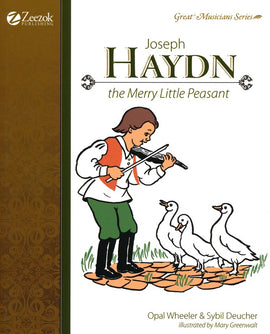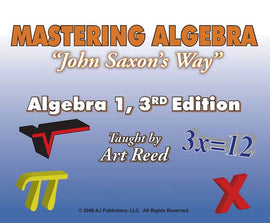Robert Schumann and Mascot Zif
Unlike many of his contemporaries, he had few major problems to overcome. His work, his family life, all brought him the reward of renown and joy. Even the stiff finger which virtually ended his career as a musician was the means of emphasizing his genius as a composer.
Paperback, 168 pages
Robert Alexander Schumann (1810-1856) He was born in Zwickau, Saxony (Southern Germany) and began to compose piano music by age 7. A hand injury kept him from excelling as a pianist but his music teacher (Fredrich Wieck) encouraged him to become a composer. He married the teacher's daughter, Clara, herself an accomplished pianist. He located in Leipzig (another city of Saxony) and there he co-founded a publication called "the New Journal for Music." Besides his many piano compositions, he produced 4 symphonies, an opera, and other orchestral and chamber musical works. His most famous piano works are "Carnaval," "Kreislenana," and the "Traumerei." All three of these continue to be a part of current classical programs today.
| Book Title | Robert Schumann and Mascot Zif |
| Publisher: | Zeezok Pub/Book Peddler |
Unlike many of his contemporaries, he had few major problems to overcome. His work, his family life, all brought him the reward of renown and joy. Even the stiff finger which virtually ended his career as a musician was the means of emphasizing his genius as a composer.
Paperback, 168 pages
Robert Alexander Schumann (1810-1856) He was born in Zwickau, Saxony (Southern Germany) and began to compose piano music by age 7. A hand injury kept him from excelling as a pianist but his music teacher (Fredrich Wieck) encouraged him to become a composer. He married the teacher's daughter, Clara, herself an accomplished pianist. He located in Leipzig (another city of Saxony) and there he co-founded a publication called "the New Journal for Music." Besides his many piano compositions, he produced 4 symphonies, an opera, and other orchestral and chamber musical works. His most famous piano works are "Carnaval," "Kreislenana," and the "Traumerei." All three of these continue to be a part of current classical programs today.






